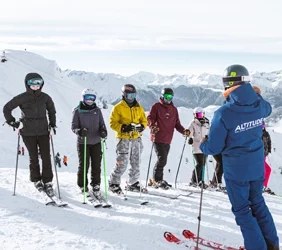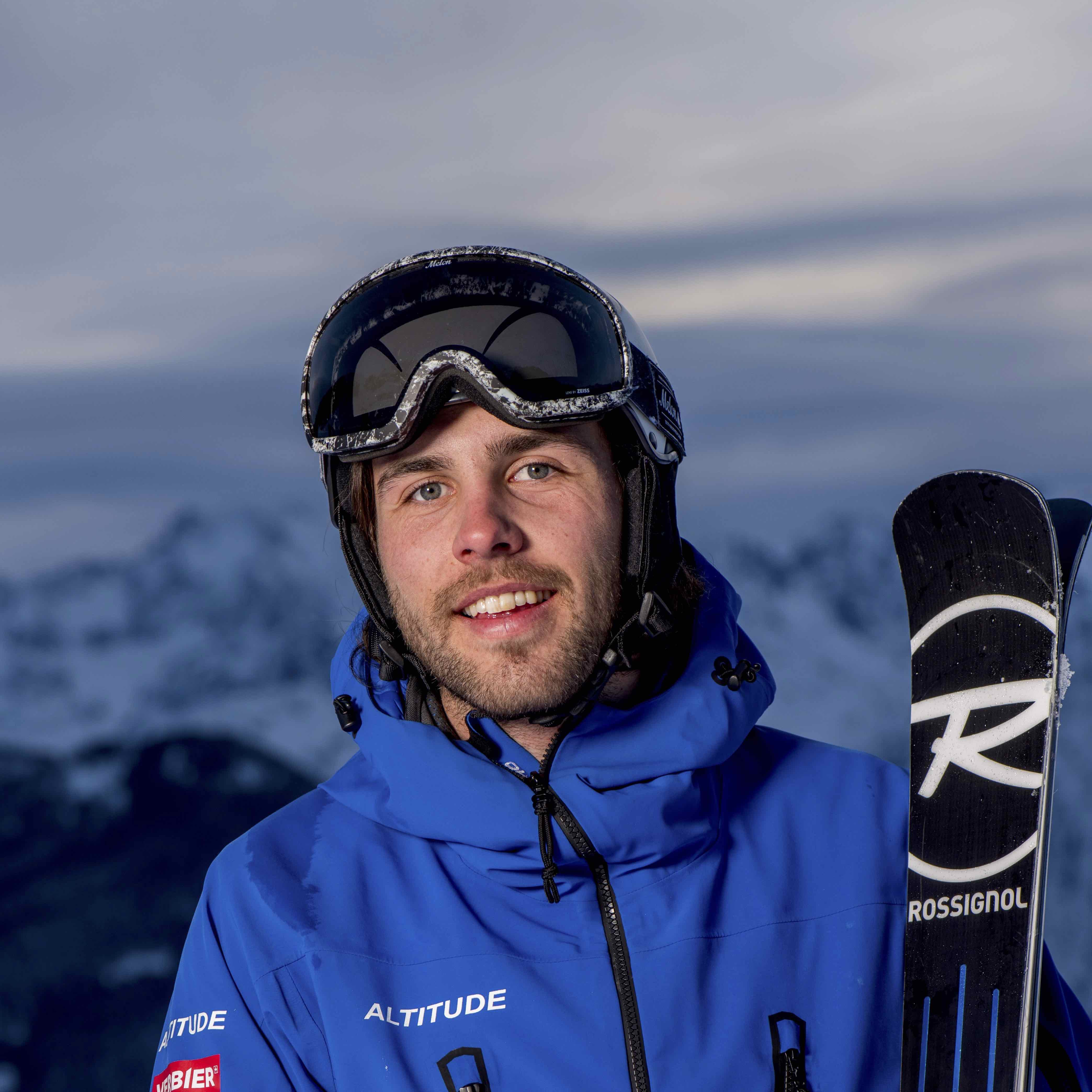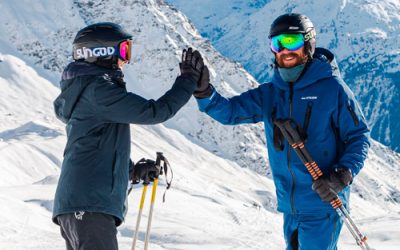When attending an instructor course, it can be quite overwhelming knowing everything that you need. As you’ll be here for 10 weeks, you need a little more than your average ski holiday but not too much more.
We have provided a list below of what we think the average skier would require for a 10-week programme. This should set you up for future seasons too and means you won’t need to buy replacement kit for a long time.
CLOTHING
Ski resorts tend to be chilled out in terms of dress codes, there is no need to bring your best shirt or high heels for example. You will want casual, comfy clothes ensuring that they keep you warm and dry. Don’t bring anything too precious as you need to allow for the odd beer spillage if you like to dance on the bar or crowd surf! ?
We would advise the following types of clothing to bring with you.
- Jeans / Long Trousers / Activewear
- T-shirts – long and short sleeved
- Warm fleeces / jumpers / hoodies
- Underwear
- Winter Coat
- Hat, Gloves, Scarves
- Reliable footwear – essential for walking around the town of Verbier as there will be snow on the ground 99% of the time.
- Comfy footwear – for evenings, time off and maybe on less snowy days.
- Fancy Dress – a must for Mardi Gras celebrations!
If you are joining a 10-week course, you may like to bring some swimwear with you and gym kit for the sports centre. We also advise bringing your own towel in case your accommodation supplier doesn’t provide towels for the gym etc.
In terms of your ski clothing, again, warm and dry is key! You may be tempted to look at cool colours etc, but just make sure it is suitable for the mountains, what you don’t want is to be skiing in the spring time only to discover that your jacket isn’t waterproof and it’s a rainy day!
Our recommended kit includes:
- Helmet – safety first always!
- Hat – good for covering the hat hair
- Gloves or mittens
- Ski Socks – wearing two pairs is a myth, your feet can’t breathe and you risk things like athletes foot so ensure proper ski socks and not just winter socks designed for wearing at home or in wellies.
- Neck/face warmer or a balaclava – these can easily be worn under helmets too
- Thermal Tops – natural fabrics are good here for example merino wool. Icebreaker have some great thermals that are no stink technology, you can wear them a good few days before they need washing!
- Thermal Trousers
- Long Sleeve Tops to layer
- Fleeces
- Puffa Jacket – for the really cold days, a thin down jacket can be great for putting under your jacket!
- Ski Jacket – we prefer shells personally so on warmer days you can wear thin layers underneath and likewise on cooler days, you can wear a puffa underneath to layer up.
- Ski Trousers – ones with vents on are great in case you get some leg burn!
- Ski Goggles – you may want a pair with polarized lenses for the sunny days and perhaps a spare lense for the low light / foggy days (orange and yellow lenses are great for these days)
- Sunglasses – it’s not so cool to wear helmets and glasses but if you can’t resist or want some for wandering town and sitting in bars, make sure that they are 100% UV protection.
- Skis and poles (more below on skis)
- Boots (more below)
You may also wish to invest in a back protector, these are recommended but not everyone wears one, so it comes down to personal preference. If you have previous back injuries or weaknesses here, you may prefer to wear one.
Also ensure you have sun cream and after sun – you will be spending a lot of time in the sun so it is recommended that you apply a higher block than usual (30+ but ideally 50) – not only is the air thinner here so the sun is stronger but you also have the reflection from the snow.
EQUIPMENT ADVICE – SKIS AND BOOTS
When training as a ski instructor, it is important to buy skis that will suit the types of conditions that you are likely to be examined on throughout the course.
Experience tells us that students benefit greatly and make bigger improvements whilst skiing with a ski that performs well on the piste. However, in many resorts, particularly Verbier, you’ll also find a great deal of ‘off- piste’ and ‘variable snow conditions’ so some students find it easier to also have a ski which caters for these conditions too.
On the market these days there are so many skis to choose from that it is not always easy to know which skis to buy. We advise you to purchase either a piste orientated ski or an all mountain ski orientated towards more piste skiing than off- piste.
PLEASE DON’T TURN UP ON THE COURSE WITH A BIG FAT PAIR OF SKIS WITHOUT ANY SIDE CUT!
This won’t help you perform well for the criteria required to pass the exams. If you have more than one pair though, you may like a piste pair and a pair for the powder.
Here at Altitude, we are partnered with Rossignol and when you book onto one of our courses, you’ll benefit from up to 50% off their latest equipment! We send you a code for the VIP area of their website and you can order with free delivery to your UK address.
We are also always on hand to help you choose the right skis. We can chat to you about your ski experience, height, weight, and the type of ski you are after and we can then recommend some to look at advising on correct length and bindings for your size.
BOOTS
When buying ski boots it is important to make sure that they fit you properly. We always recommend seeking professional advice when purchasing a pair of boots – if you have any issues with your feet, you will want to make sure that they are fitted well to you.
Also, depending on the shape of your foot, some brands may suit you better than others. You may also find foam injection, footbeds or some ‘blowing out’ (stretching of the plastic) in areas on the boots will ensure a better fit.
Most equipment shops in resort will have a specialist in this area and we strongly advise buying in resort as opposed to in the UK. In resort, the experience and knowledge tend to be far greater, for example the guys we work with have been fitting boots for 20 years, that’s a lot of ski boots fitted!
You’ll also no doubt want to adjust your boots in the first few days after purchasing, if you have bought them in resort, this service is generally included in the cost and gives you peace of mind that you can adjust them as needed.



